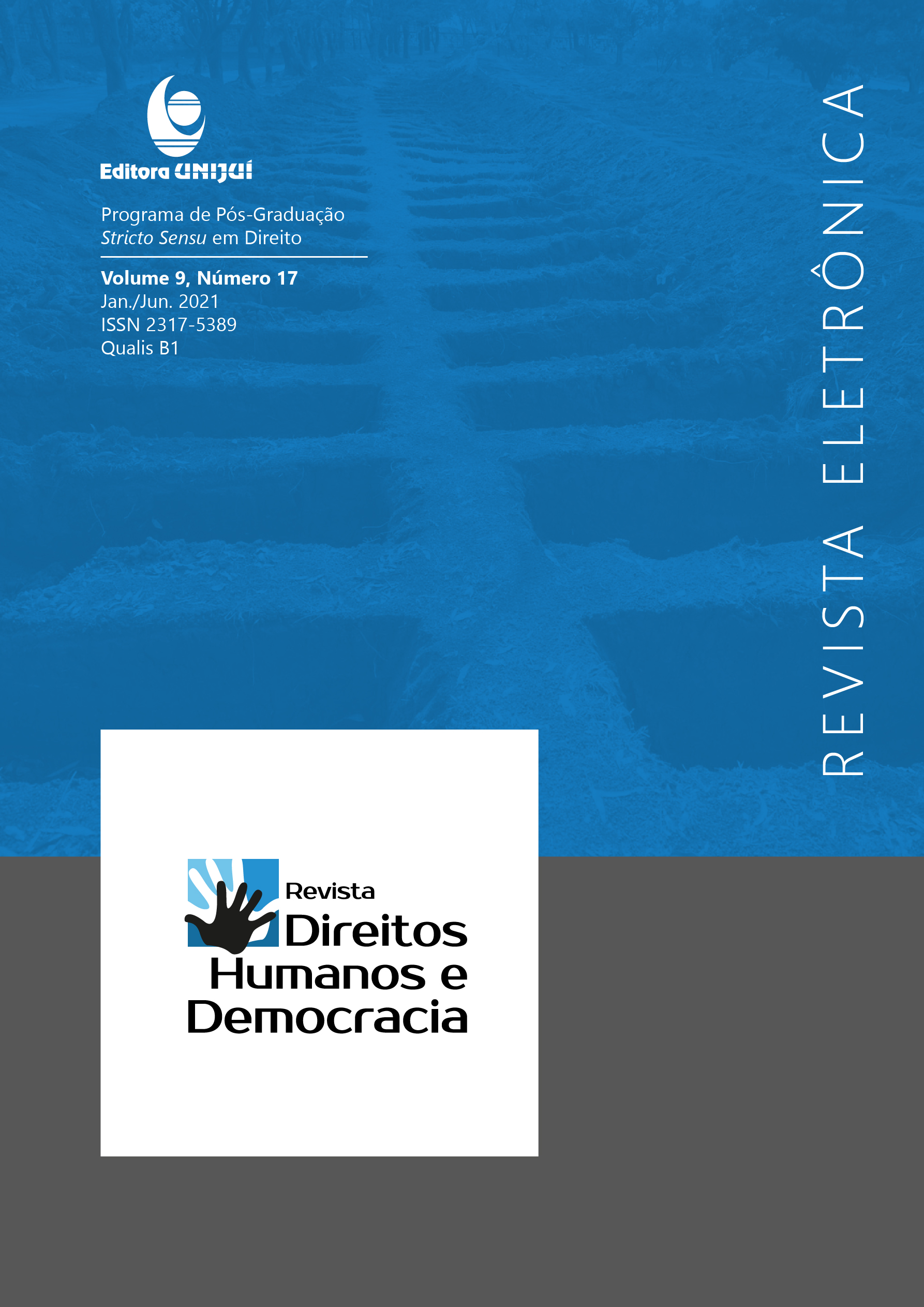A DESJUDICIALIZAÇÃO COMO ALTERNATIVA À CRISE DA JURISDIÇÃO NA ÁREA DA SAÚDE
JUDICIALIZATION AS AN ALTERNATIVE TO THE CRISIS OF HEALTH JURISDICTION
DOI:
https://doi.org/10.21527/2317-5389.2021.17.9760Keywords:
Desjudicialização. Acesso à justiça. Métodos Socialmente Adequados de Resolução de Conflitos. Poder Judiciário.Abstract
O presente artigo tem por objetivo abordar o acesso à Justiça, debruçando-se, especialmente, sobre como o número
exacerbado de demandas individuais envolvendo o direito à saúde afeta a efetividade e celeridade do trâmite
de ações no poder Judiciário, mostrando-se urgente o fomento de meios pré-processuais de resolução de conflitos
para se obter um desempenho melhor na solução de litígios para a sociedade. Nesse contexto, procura-se repensar
essa sistemática partindo de mecanismos extraprocessuais e pré-processuais de solução de conflitos. Far-se-á uma
abordagem do acesso à Justiça não só como garantia de acesso ao poder Judiciário e a um julgamento justo, mas
com base na premissa de que o acesso à Justiça está garantido pelos meios pré-processuais de resolução de conflitos
quando houver a participação, em alguma medida, do poder Judiciário, seja como participante ativo do sistema
pré-processual ou mero fomentador. Nessa medida, fala-se em Métodos Socialmente Adequados de Resolução de
Conflitos.
Downloads
Published
How to Cite
Issue
Section
License
By publishing in the Revista Direitos Humanos e Democracia, authors agree to the following terms:
Articles are licensed under the Creative Commons Atribuição 4.0 Internacional (CC BY 4.0), which allows:
Share — copy and redistribute the material in any medium or format;
Adapt — remix, transform, and build upon the material for any purpose, including commercial use.
These permissions are irrevocable, provided the following terms are respected:
Attribution — authors must be properly credited, with a link to the license and indication of any modifications made;
No additional restrictions — no legal or technological measures may be applied that restrict the use permitted by the license.
Notices:
The license does not apply to elements in the public domain or covered by legal exceptions.
The license does not grant all rights required for specific uses (e.g., image rights, privacy, or moral rights).
The journal is not responsible for opinions expressed in the articles, which remain the sole responsibility of the authors. The Editor, with the support of the Editorial Committee, reserves the right to suggest or request modifications when necessary.
Only original scientific articles presenting research results of interest, not previously published or simultaneously submitted to another journal with the same purpose, will be accepted.
References to trademarks or specific products are intended solely for identification purposes and do not imply any promotional endorsement by the authors or the journal.
License Agreement: Authors retain copyright over their articles and grant the Revista Direitos Humanos e Democracia the right of first publication.













